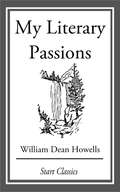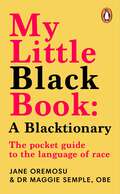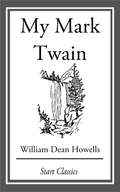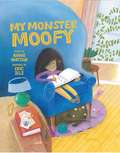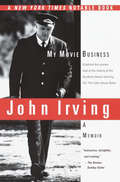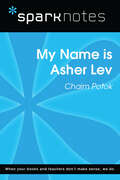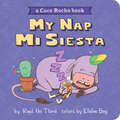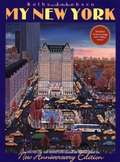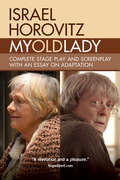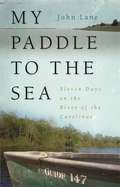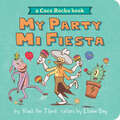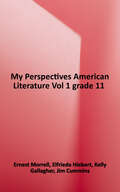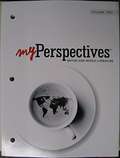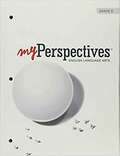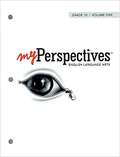- Table View
- List View
My Literary Passions
by William Dean HowellsWilliam Dean Howells (1837-1920) was an American realist author and literary critic. He wrote his first novel, Their Wedding Journey, in 1871, but his literary reputation really took off with the realist novel A Modern Instance, published in 1882, which describes the decay of a marriage. His 1885 novel The Rise of Silas Lapham is perhaps his best known, describing the rise and fall of an American entrepreneur in the paint business. His social views were also strongly reflected in the novels Annie Kilburn (1888) and A Hazard of New Fortunes (1890). While known primarily as a novelist, his short story "Editha" (1905) - included in the collection Between the Dark and the Daylight (1907) - appears in many anthologies of American literature. Howells also wrote plays, criticism, and essays about contemporary literary figures such as Ibsen, Zola, Verga, and, especially, Tolstoy, which helped establish their reputations in the United States. He also wrote critically in support of many American writers. It is perhaps in this role that he had his greatest influence.
My Little Black Book: The pocket guide to the language of race
by Maggie Semple Jane OremosuThrough their work with organisations and companies across the world, Maggie Semple and Jane Oremosu found that there was a need to help people as they discussed difference, race and inclusion. My Little Black Book: A Blacktionary aims to do just that.This A-Z pocket guide is for people who are entering the workplace and finding their identity, for leaders and managers who feel overwhelmed by ever-evolving definitions and phrases, for anyone who is afraid of saying the wrong thing and being judged. From explaining what microagressions are and their impact, to helping you understand what cultural appreciation is and how it's different to cultural appropriation, this book will break down barriers to engaging in conversations on race.Drawing together the best definitions as well as useful advice and tips, My Little Black Book: A Blacktionary is an essential tool to broaden your knowledge and live and work better with others.
My Mark Twain: From 'Literary Friends and Acquaintances'
by William Dean HowellsWilliam Dean Howells (1837-1920) was an American realist author and literary critic. He wrote his first novel, Their Wedding Journey, in 1871, but his literary reputation really took off with the realist novel A Modern Instance, published in 1882, which describes the decay of a marriage. His 1885 novel The Rise of Silas Lapham is perhaps his best known, describing the rise and fall of an American entrepreneur in the paint business. His social views were also strongly reflected in the novels Annie Kilburn (1888) and A Hazard of New Fortunes (1890). While known primarily as a novelist, his short story "Editha" (1905) - included in the collection Between the Dark and the Daylight (1907) - appears in many anthologies of American literature. Howells also wrote plays, criticism, and essays about contemporary literary figures such as Ibsen, Zola, Verga, and, especially, Tolstoy, which helped establish their reputations in the United States. He also wrote critically in support of many American writers. It is perhaps in this role that he had his greatest influence.
My Monster Moofy
by Annie WatsonThere’s a monster under my bed who changes like a chameleon. He can be motionless like a rock with a tail, or he can strike with blinding speed, like a lightning bolt with claws. My monster’s name is Moofy. His ears are as pointy as tortilla chips. His tongue is as pink as bubblegum, and his teeth are as sharp as swords. By day, Moofy is a fur rug in the sunshine. By night, he’s a pair of glowing headlights in the darkness. With those opening lines, we’ve already encountered similes using like, similes using as, and metaphors. Personifications, idioms, hyperboles, allusions, and much more lie ahead. But this isn’t a writing guide, it’s a picture book story about a little monster who oozes personality. The first pages leave us guessing, but kids will soon figure out, to their delight, that Moofy’s a cat. And what else could this furball of mischief be? Fun is the order of the day, but an unobtrusive banner on each page lets interested readers know which figure of speech is being featured. This is a book a young reader and future writer can grow with.
My Movie Business: A Memoir
by John IrvingJohn Irving's memoir describes the author's involvement (and lack thereof) in five of the films that have (and have not) been made from his nine novels.My Movie Business focuses primarily on the thirteen years Mr. Irving spent writing and rewriting his screenplay of The Cider House Rules, for four different directors. A Miramax production, the film was finally shot in the fall of 1998 directed by the Swedish director Lasse Hallström (My Life as a Dog), with Michael Caine in the role of Dr. Larch. The Cider House Rules is a November 1999 release.Mr. Irving also writes about the failed effort to make his first novel, Setting Free the Bears, into a movie; about two of the films that were made from his novels (but not from his screenplays), The World According to Garp and The Hotel New Hampshire; and about his ongoing struggle to shepherd his screenplay of A Son of the Circus into production.In addition to its qualities as a memoir - anecdotal, comic, affectionate, and candid - My Movie Business is an insightful essay on the essential differences between writing a novel and writing a screenplay. Never have the two forms of storytelling been so lucidly compared and contrasted; the details are memorable, the examples clarifying.My Movie Business includes photos by Stephen Vaughan, the still photographer on the film set of The Cider House Rules.
My Mysterious World (Meet the Author)
by Margaret MahyMahy tells young readers about her home in New Zealand, what her days are like, and how she gets ideas for stories. Other books by Margaret Mahy are available in this library.
My Name is Asher Lev (SparkNotes Literature Guide Series)
by SparkNotesMy Name is Asher Lev (SparkNotes Literature Guide) by Chaim Potok Making the reading experience fun! Created by Harvard students for students everywhere, SparkNotes is a new breed of study guide: smarter, better, faster. Geared to what today's students need to know, SparkNotes provides: *Chapter-by-chapter analysis *Explanations of key themes, motifs, and symbols *A review quiz and essay topicsLively and accessible, these guides are perfect for late-night studying and writing papers
My Nap, Mi Siesta: A Coco Rocho Book (World of ¡Vamos!)
by Raúl The Third IIIIn this colorful bilingual Spanish and English board book highlighting the joys of napping from New York Times bestselling, three-time Pura Belpré Award–winning author-illustrator Raúl the Third, Coco Rocho shows us everywhere to take a siesta in the World of ¡Vamos!In my bed. En mi cama.Near my dog. Cerca de mi perro.With my stuffed animals. Con mis peluches.Explore all the places Coco Rocho finds to sleep in this bilingual Spanish and English board book. Sweet dreams! ¡Dulces sueños!
My New York
by Kathy JakobsenBecky, a young New Yorker, takes the reader and a friend on a tour of her favorite places in the city
My Odyssey: An Autobiography
by Nnamdi AzikiweMan comes into the world, and while he lives he embarks upon a series of activities, absorbing experience which enables him to formulate a philosophy of life, and to chart his courses of action; but then he dies. Nevertheless, his biography remains as a guide to those of the living who may need guidance, either as a warning on the vanity of human wishes, or as an encouragement, or both.
My Old Lady: Complete Stage Play and Screenplay with an Essay on Adaptation
by Israel HorovitzFamed playwright Israel Horovitz has written more than 70 produced plays, which have been translated in more than 30 languages worldwide. Along the way, he has also written screenplays for film including Author! Author!, starring Al Pacino, as well as the award-winning Sunshine, James Dean, and The Strawberry Statement. At the age of 75, he directed an adaptation of his play My Old Lady, starring Kevin Kline, Maggie Smith, and Kristin Scott Thomas. Now he shares tips and techniques on adapting plays for the screen.The book includes the full script of both the play version and screenplay of My Old Lady, along with an in-depth analysis by Horovitz of the challenges of adapting the written language of a play to the visual language of the screen. He discusses what inspired him to consider adapting the play in the first place, and his diligent efforts to distill the spoken language of the play into the visual language of film. In discussing his adaptation process, Horovitz also reveals his brilliant insights into the creative process itself, as well as how to keep inspired during the course of a lengthy writing career.
My Paddle to the Sea: Eleven Days on the River of the Carolinas
by John LaneThree months after a family vacation in Costa Rica ends in tragedy when two fellow rafters die on the flooded Rio Reventazón, John Lane sets out with friends from his own backyard in upcountry South Carolina to calm his nerves and to paddle to the sea.
My Party, Mi Fiesta: A Coco Rocho Book (World of ¡Vamos!)
by Raúl the Third IIIIn this festive bilingual Spanish and English board book from New York Times bestselling, three-time Pura Belpré Award–winning author-illustrator Raúl the Third, join Coco Rocho and friends from the World of ¡Vamos! as they gather everything to throw a grand fiesta!Throwing a party is always fun, especially when it’s in both English and Spanish!In this board book, young readers are introduced to Spanish vocabulary through all the fun of a party.Friends, cake, music—amigos, pastel, música—join Coco Rocho and all his companions at this joyful fiesta!
My Perspective California American Literature: Volume 1
by Jim Cummins Kelly Gallagher Elfrieda Hiebert Ernest MorrellMy Perspectives™ English Language Arts is a student centered learning environment where you will analyze text, cite evidence, and respond critically about your learning. You will take ownership of your learning through goal-setting, reflection, independent text selection, and activities that allow you to collaborate with your peers. <p><p>Each unit of study includes selections of different genres including multimedia all related to a relevant and meaningful Essential Question. As you read, you will engage in activities that inspire thoughtful discussion and debate with your peers allowing you to formulate, and defend, your own perspectives.
My Perspectives English Language Arts (Grade 7)
by Prentice-Hall StaffmyPerspectives™ English Language Arts is a student-centered learning environment where you will analyze text, cite evidence, and respond critically about your learning. You will take ownership of your learning through goal-setting, reflection, independent text selection, and activities that allow you to collaborate with your peers. <p><p> Each unit of study includes selections of different genres--including multimedia--all related to a relevant and meaningful Essential Question. As you read, you will engage in activities that inspire thoughtful discussion and debate with your peers allowing you to formulate, and defend, your own perspectives.
My Perspectives Grade 09 Volume 2: English Language Arts
by PearsonMy Perspectives English Language Arts Grade 9 Volume 2
My Perspectives, English Language Arts, Grade 8
by Kelly Gallagher Elfrieda Hiebert Ernest MorrellNIMAC-sourced textbook
My Perspectives, English Language Arts, Grade 9, Volume One
by Kelly Gallagher Elfrieda Hiebert Ernest MorrellNIMAC-sourced textbook
My Perspectives, English Language Arts, Grade 9, Volume Two
by Kelly Gallagher Elfrieda Hiebert Ernest MorrellNIMAC-sourced textbook
My Perspectives, English Language Arts, [Grade 10], Volume One
by Kelly Gallagher Elfrieda Hiebert Ernest MorrellNIMAC-sourced textbook
My Perspectives, English Language Arts, [Grade 10], Volume Two
by Kelly Gallagher Elfrieda Hiebert Ernest MorrellNIMAC-sourced textbook
My Perspectives: British and World Literatures (Volume #1)
by Pearson EducationmyPerspectivesTM BRITISH AND WORLD LITERATURE Volume 1
My Perspectives: English Language Arts
by Kelley GallaghermyPerspectives™ English Language Arts is a student-centered learning environment where you will analyze text, cite evidence, and respond critically about your learning. You will take ownership of your learning through goal-setting, reflection, independent text selection, and activities that allow you to collaborate with your peers. Each unit of study includes selections of different genres-- including multimedia--all related to a relevant and meaningful Essential Question. As you read, you will engage in activities that inspire thoughtful discussion and debate with your peers allowing you to formulate, and defend, your own perspectives.
My Perspectives: English Language Arts, [Grade 10], Volume One
by Kelly Gallagher Elfrieda Hiebert Ernest MorrellNIMAC-sourced textbook
